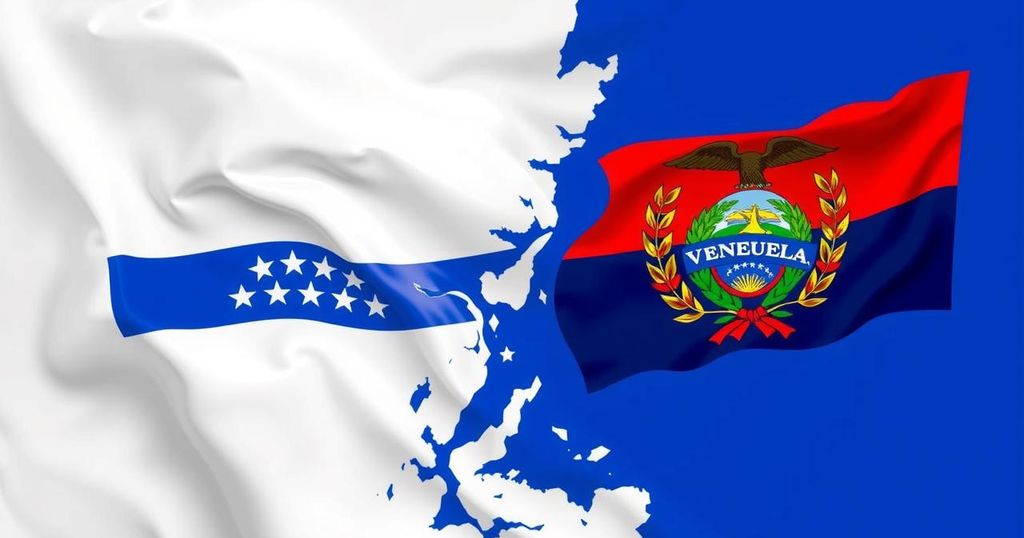Ortega Offers Military Support to Maduro Amidst Venezuelan Election Tension

Daniel Ortega of Nicaragua has offered military support to Venezuelan President Maduro amidst political unrest following a disputed election. Ortega criticized regional leaders for failing to recognize Maduro’s victory while tensions remain high due to accusations of electoral fraud and human rights violations across Venezuela. The situation spotlights the challenges of governance in Latin America under authoritarian rule.
Nicaragua’s President Daniel Ortega has extended an offer to send “Sandinista fighters” to Venezuela, supporting President Nicolas Maduro amid tensions following Venezuela’s recent disputed presidential election. Following Maduro’s victory declaration, which has faced skepticism both domestically and internationally, protests have erupted across Venezuela, leading to violence and numerous detentions of opposition supporters. In a virtual meeting with other Latin American leaders, Ortega pledged that should an “armed counterrevolution” arise against Maduro’s government, his supporters would stand ready to assist. It remains unclear whether Ortega intends to mobilize military forces, police, or armed pro-government groups accused of suppression efforts, which the Nicaraguan government has denied. Ortega utilized the summit to criticize fellow leftist leaders, including Brazil’s Luiz Inácio Lula da Silva and Colombia’s Gustavo Petro, for their refusal to recognize Maduro’s electoral victory as legitimate. Ortega described Lula’s stance as “shameful,” accusing him of compromising on human rights to align with the United States. Petro, in response, countered Ortega’s claims, emphasizing his commitment to human rights in contrast to Ortega’s government. Despite Maduro’s electoral council declaring him the winner with over 50% of the vote, opposition figures and international observers have raised doubts about the integrity of the election. Major electoral bodies and institutions such as the United Nations have called for detailed results from polling stations. In the meantime, Venezuela’s opposition has released data suggesting that opposition candidate Edmundo Gonzalez Urrutia may have actually secured more votes than Maduro, according to expert analyses of the published ballots. As the political landscape in Venezuela remains deeply polarized, Ortega’s military support pledge underscores the increasing regional tensions over governance and elections in Latin America.
The political situation in Nicaragua and Venezuela reflects broader regional patterns of authoritarian governance and challenges to democracy. President Daniel Ortega’s Sandinista National Liberation Front (FSLN) has been in power since the late 1970s, and Ortega’s recent actions may be seen as efforts to bolster alliances with similar regimes. In Venezuela, President Nicolas Maduro’s administration has faced accusations of electoral fraud and human rights abuses, with political unrest escalating after a disputed election. The support from Ortega indicates a potential shift towards militarization in addressing political opposition in both countries, raising concerns among international observers about democratic integrity.
The recent developments in Nicaragua and Venezuela highlight the complex interplay of authoritarian governance in Latin America, particularly in the context of electoral disputes and widespread civil unrest. Ortega’s offer of military support to Maduro raises significant concerns regarding the regional balance of power and the implications for human rights. The ongoing skepticism about electoral integrity emphasizes the need for transparent governance and accountability in the region.
Original Source: edition.cnn.com







